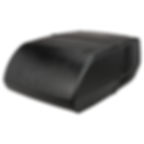Don't let the Phoenix heat beat you. The Benefits of Annual RV AC Cleaning
- info4725055
- Aug 10, 2024
- 3 min read
Hitting the road in your RV means you want to enjoy your travels in comfort. A key part of maintaining that comfort is keeping your RV’s air conditioning (AC) system in top shape. Regular AC cleaning, ideally once a year, plays a crucial role in enhancing cooling efficiency and ensuring you stay cool on your adventures. Let’s explore why yearly RV AC cleaning is so vital and how it can keep your system running smoothly.
Understanding Your RV’s AC System
Your RV's AC system works on principles similar to home AC systems, cooling air by removing heat and moisture. It uses a refrigerant that cycles through coils inside the unit. The refrigerant absorbs heat from the RV's air and releases it outside, resulting in a pleasantly cool interior.
Here are the main components of your RV’s AC system:
Evaporator Coil: Located inside, this coil absorbs heat from the air in your RV, causing the refrigerant to evaporate and turn into gas.
Condenser Coil: Positioned outside, this coil releases the absorbed heat into the outside air, cooling the refrigerant back to liquid form before it re-enters the RV.
Compressor: This component pressurizes the refrigerant, ensuring it circulates between the evaporator and condenser coils.
Blower Fan: Inside the RV, the blower fan distributes the cooled air, maintaining an even temperature throughout your living space.
Filter: The filter traps dust and debris, which helps maintain air quality and system performance.

Types of RV AC Systems
Your RV might have one of several types of AC systems:
Roof-Mounted Units: These are common and effective for cooling large spaces. They are usually equipped with a heat pump function for cooler days.
Portable Units: These can be moved around and set up as needed but require venting through a window or door.
Ducted Systems: These provide even cooling throughout RVs with built-in ductwork, offering quieter operation and better air distribution.
Non-Ducted Systems: Simpler and suited for smaller RVs or areas without ductwork, though they may not distribute air as evenly.
The Importance of Yearly Cleaning
Regular AC cleaning is essential for optimal performance and longevity. Here’s why:
Improves Air Quality: Cleaning removes dust, allergens, and pollutants, creating a healthier living environment.
Enhances Energy Efficiency: A clean system uses less power, which can lower your utility bills.
Prevents Premature Wear: Regular maintenance helps avoid breakdowns and extends your AC’s lifespan.
Signs Your AC Needs Cleaning
Watch for these indicators that your RV AC may need attention:
Reduced Cooling Efficiency: If your AC struggles to cool the RV, it might be clogged.
Uneven Cooling: Temperature inconsistencies suggest a problem with airflow.
Musty Odors: Unpleasant smells often mean mold or mildew is present.
Unusual Sounds: Strange noises could indicate debris or damage.
DIY Cleaning Tips
Cleaning your RV AC doesn’t have to be daunting. Here’s a simple guide:
Gather Supplies: You'll need basic tools and cleaning supplies.
Clean the Filters: Remove and wash the filters to ensure proper airflow.
Remove Debris: Clear dust and debris from the coils.
Clean Vents and Ducts: Ensure that vents and ducts are free of obstructions for optimal airflow.
Professional Cleaning
If you prefer, professional AC cleaning services can offer thorough cleaning and inspection. Here’s how to find a good technician:
Check Qualifications: Look for experienced and certified professionals.
Ask Questions: Inquire about their cleaning process and any warranties or guarantees.
Ongoing Maintenance
After cleaning, regular checks are crucial. Inspect for leaks and damage, keep the area around the unit clean, and prepare your AC for different weather conditions.
In summary, annual RV AC cleaning is key to staying cool and comfortable on the road. By understanding your system, recognizing the benefits of regular cleaning, and knowing when to seek professional help, you ensure a pleasant RV experience. Prioritize your AC's cleanliness to fully enjoy your travels and maintain a cool, comfortable environment in your RV.

